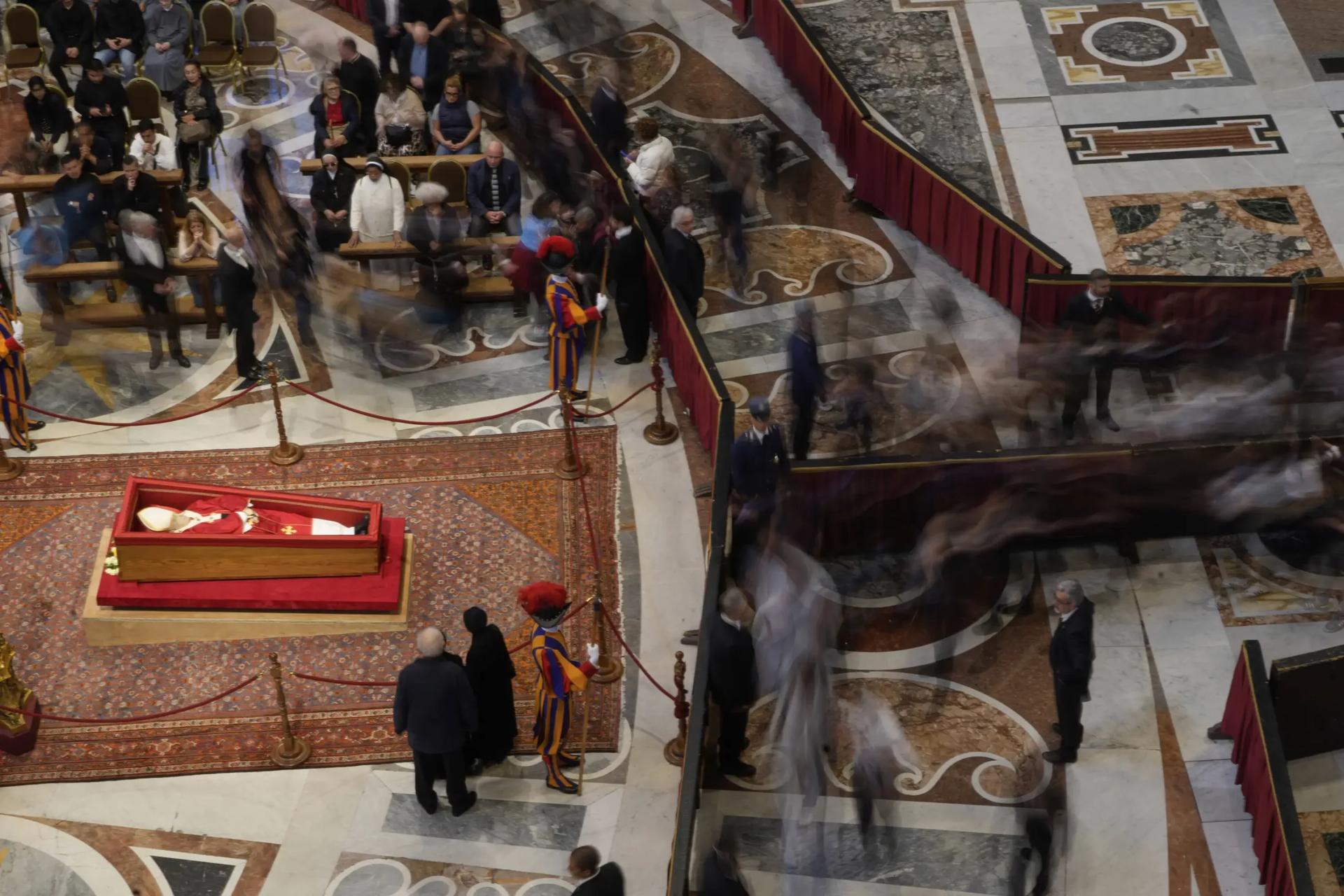ROME – One of Pope Francis’s most consistent geopolitical priorities throughout his 12-year reign was peacemaking, most notably through his constant push for building bridges, keeping channels of dialogue open and strengthening multilateralism.
The world’s first non-Western pope made it a personal mission to carry forward a “diplomacy of dialogue” in various contexts and situations, from engagement with China to the war in Ukraine and conflict in the Middle East.
He has consistently pushed a strategy of multilateralism as a solution to resolving common issues such as migration and climate change, and while this advocacy was not always appreciated by everyone, he never failed to continue pursuing this agenda.
Now, one of his final acts will come at his funeral Saturday, as some 130 delegations, 50 heads of state and 10 reigning monarchs come together to pay their final respects and bid farewell to a maverick pope that left his mark on the church, and the world.
Most notably, among the attendees will be United States President Donald Trump, accompanied by his wife Melania, and Ukrainian President Volodymyr Zelenskyy, who in the past few weeks and months have been unable to occupy the same space without the eruption of some sort of disagreement.
Now, Pope Francis, who was unable to mediate the conflict in Ukraine during his papacy, is successfully bringing many of the various parties involved together for a moment of prayer and remembrance of a man who dedicated his life and his ministry to working for peace.
Heads of state and top dignitaries who have said they will attend the pope’s funeral, including Trump and Zelenskyy, include: Argentinian President Javier Milei; Brazilian President Luiz Inácio Lula da Silva; French President Emmanuel Macron; British Prime Minister Keir Starmer and Prince William for the UK; and Hungarian President Viktor Orbán.
Others include United Nations secretary general António Guterres; Italian President Sergio Mattarella and Prime Minister Giorgia Meloni; King Felipe and Queen Letizia of Spain; President Michael D Higgins and Taoiseach Micheál Martin of Ireland; President of Poland Andrzej Duda; Portuguese President Marcelo Rebelo de Sousa and its prime minister, Luís Montenegro; Mexican Interior Minister Rosa Icela Rodríguez; and President Ferdinand Marcos Jr. of the Philippines.
Notable absentees on the list include Russian President Vladimir Putin, and Israeli President Benjamin Netanyahu, both of whom have outstanding warrants from the International Criminal Court.
Russia will be represented by its culture minister, Olga Lyubimova, and Israel will not send a delegation at all, being represented solely by their Ambassador to the Holy See, Yaron Sideman.
During Pope Francis’s funeral Mass Saturday, heads of state and dignitaries will be seated on the right side, facing the basilica.
Milei, representing Francis’s home country, which he notably never returned to as pope, will sit in the front row, alongside Mattarella and Meloni representing Italy.
Reigning sovereigns will come in the next row, followed by the various heads of state, according to the French alphabetical order of the states that will be represented.
From Wednesday at noon to Friday at noon, some 150,000 people had come to pay final respects to Pope Francis while lying in state inside St. Peter’s Basilica.
While crowds have packed the square to overflowing in the final hours remaining before St. Peter’s Basilica closes at 7p.m. local time, marking the end of the ability to bid Francis one final in-person farewell, roads have already been blocked off and routes secured for the arrival of so many high-profile attendees Saturday morning.
Barriers have been set up inside and outside of St. Peter’s Basilica to control crowds, security checks have been set up, and defense and security measures have been deployed throughout the city, including anti-drone weaponry, no-fly zones secured by fighter jets, and jamming technologies. Anti-terrorism and anti-sabotage units have also already been set up on the ground.
More than 2,000 police officers have been deployed to patrol the area, supported by 400 police officers who will assist in managing the movements of diplomatic convoys.
While every papal funeral draws together the world’s most powerful leaders and is a show of just how relevant and important the papacy is generally, Pope Francis in his final act is accomplishing something he desperately wanted to do, but was unable to, during his life: bringing together individuals and nations with deep-seeded divisions in a context where the focus is not on what divides, but jointly remembering a globally beloved figure respected and esteemed most prominently for his efforts toward peace.
Follow Elise Ann Allen on X: @eliseannallen














